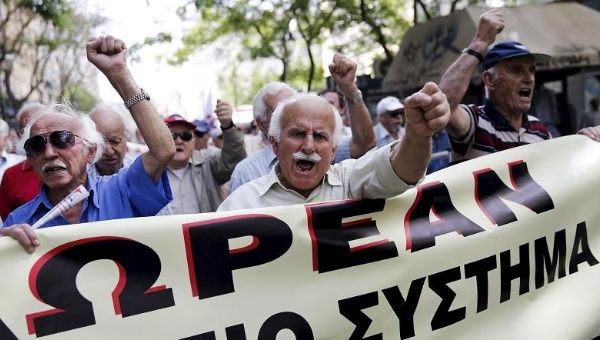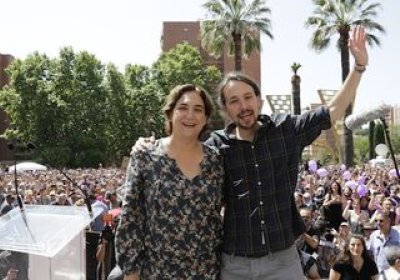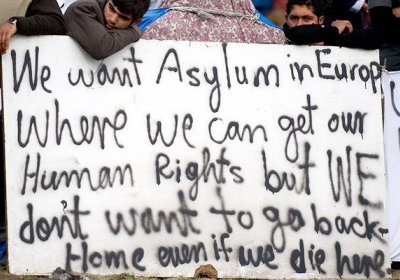Popular left-wing activist activist Ada Colau has won Barcelona's May 24 mayoral elections. Running on the ticket of Barcelona Together, which united several left groups and grassroots activists, Colau came first with 25% of the vote.
1054
Condolences and tributes to legendary revolutionary and champion of women’s rights Nora Castaneda have been pouring in from across Venezuela after news of the activist’s death on May 16.
An economist, university lecturer and much-loved revolutionary, Castaneda is renowned for having founded and presided over Venezuela’s internationally celebrated Women’s Development Bank, “Banmujer” since 2001. She was also one of the chief protagonists of Venezuela's working-class women’s movement that emerged in the 1980s.
On May 18, Baba Jan was declared the official candidate of the Awami Workers Party (AWP) by the returning officer of Gilgit-Baltistan Legislative Assembly constituency Hunza 6. Baba Jan is in jail serving a life sentence.
This is the first time in the history of the Hunza Valley that a political activist will contest general elections from jail.
Gilgit-Baltistan is a Himalayan territory administered by Pakistan.
Palestinian Authority (PA) foreign minister Riyad al-Maliki has described Venezuela as “Palestine's most important ally”, Venezuelanalysis.com said on May 19. Al-Maliki made the comments while in Caracas for bilateral talks with Venezuela's socialist government.
The new British Conservative government has launched an ultra-conservative political agenda that could unravel the peace process in six counties in Ireland's north still claimed by Britain.
Tory plans include scrapping the 1998 Human Rights Act, which underpins a key aspect of the 1998 Good Friday Agreement. The GFA peace deal included a measure that Britain integrate the European Convention of Human Rights into law in the six counties, a process included in the Human Rights Act.
A new popular uprising has started in Peru at the port of Callao, crucial for international trade and the handling of the majority of the country’s seaborne cargo.
After 10 months of unresolved negotiations with transnational company, APM Terminals Peruvian longshore workers from the port of Callao, west of Lima, decided to take to the streets and march.
This latest demonstration follows an earlier strike against the company on May 13, with workers demanding pay rises in relation to the company's profits, full healthcare coverage, and training.
“Almost a third (33%) of the UK population - 19.3 million people - fell below the official poverty line at some point between 2010 and 2013, according to figures released by the Office for National Statistics,” the Press Association reported on May 20.
The article said “The ONS records someone as being in poverty if they live in a household with disposable income below 60% of the national average, before housing costs. Persistent poverty is defined as being in poverty in the current year and at least two of the three preceding years.
More than 300 migration experts and academics have condemned the European Union's plan of military intervention against the surge of smuggling boats heading to Europe across the Mediterranean Sea.
The academics’ strong condemnation of the plan comes after Italian Prime Minister Matteo Renzi compared the current migrant crisis to the 18th and 19th century slave trade. In a recent article for the New York Times, he wrote that “human traffickers are the slave traders of the 21st century, and they should be brought to justice”.
 Photo: Kurdpress.com.
The June 7 elections to Turkey’s Grand National Assembly are shaping up to be the most important in a long time. The bold decision of the People’s Democratic Party (HDP) to run as a party and strive to exceed the grossly undemocratic 10% threshold needed to win representation in parliament has put the group at the political centre stage.
Photo: Kurdpress.com.
The June 7 elections to Turkey’s Grand National Assembly are shaping up to be the most important in a long time. The bold decision of the People’s Democratic Party (HDP) to run as a party and strive to exceed the grossly undemocratic 10% threshold needed to win representation in parliament has put the group at the political centre stage.
"Resign Now" is the rallying cry of the popular movement bringing together diverse social sectors calling for President Perez Molina's resignation. Photo: Prensa Comunitaria. Despite growing social movement pressure and emerging corruption scandals, Guatemalan President Perez Molina says he will not resign.
 Greek pensioners joined the march for a better healthcare in Athens.
Greek pensioners joined the march for a better healthcare in Athens.
The fossil fuel industry receives US$5.3 trillion a year in government subsidies, despite its disastrous toll on the environment, human health, and other global inequality issues, a new report by the International Monetary Fund (IMF) has found.
That means that governments worldwide are spending $10 million every minute to fund energy companies — more than the estimated public health spending for the entire globe.
- Page 1
- Next page









